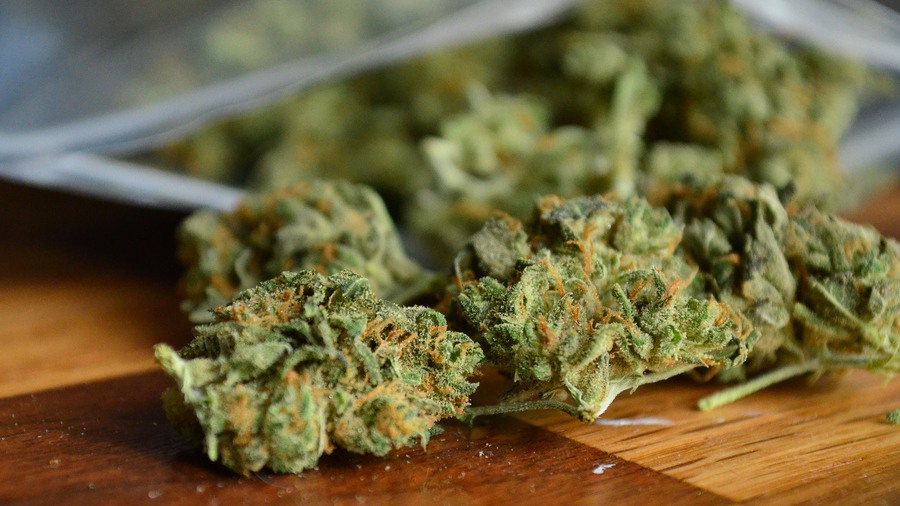Movements
Generous Cannabis: Charity Begins At Home, But Sometimes Finds A Better Reception Abroad

It would not be too much of a stretch to predict 2018 the entire year of cannabis. By the access to a large selection of new recreational marijuana products to renewable hemp substances, the material has changed into a celebrity component in a plethora of products throughout the world. Presently legal available at the vast majority of North America, lawful recreational cannabis is getting its own merry day in sunlight and enjoying the biggest profits for its plant thus far. 1 conservative estimate by customer insights group BDS Analytics jobs legal marijuana intake worldwide to reach $32 billion by 2022.
There’s a sticky point, however. As a continuous cascade of profitable businesses continues to grab headlines, cannabis is in precisely the exact same time mired at a bewildering grey legal zone as a consequence of an obsolete choice by the U.S. national authorities. Though marijuana legalization continues to find acceptance with Republicans across America — with 32 legal conditions and counting, as well as red states like Missouri and Utah demanding legal marijuana at midterm elections this year — that the national government was fixed in their decision to keep cannabis recorded as a Schedule 1 drug. Defined as a material using”no medicinal value,” the Program 1 designation creates the plant prohibited at the national level, while concurrently legal in the country level in these 32 states. That has created a substantial speed bump for a number of investors seeking to go into the cannabis market — and it has also made a conundrum for a lesser believed subset of cannabis devotees: philanthropists.
This past year, Forbes reported that many charitable cannabis businesses in the U.S. had their generous contributions refused by charities. You read that right — lawful cash given in a lawful method to lawful charities was shipped. Marijuana firm Organa Brands state they had been confounded by the case when they found that their contributions were refused by Wounded Warriors as well as the American Cancer Society. “It felt like a slap in the face,” explained Organa Brands President Chris Driessen. “Since the message has been, basically, you are a drug dealer.” Paradoxically, both of these organizations encourage individuals who cannabis advocates work for, as cannabis has been proven to lessen the symptoms of PTSD for war veterans and also assist with the distress of chemotherapy in cancer patients. More lately, MJBizDaily reported that marijuana merchant Hotbox Farms had their $25,000 contribution to a childhood water park in Oregon returned into them. Others who had contributed to the park said that they did not enjoy that Hotbox’s title would seem with theirs and threatened to pull out.
Also Read: Cannabis rules take small businesses on a roller coaster ride
This legal grey zone at the U.S. has produced a climate where lots of cannabis entrepreneurs contemplating charitable gifts, or people seeking to make miniature companies, prefer to deal overseas than in America. The problem is with the knock-on effect of providing opportunities to enhance people’s lives in poorer nations while at exactly the exact same time supplying entrepreneurs with economies in the kind of lower operating expenses.
David Woonteiler, creator of handmade hemp purse manufacturer Core Hemp, ” he created such an arrangement in Nepal. After going to the nation on holiday a couple of years ago and locating a direct affinity for the nation and its people, Woonteiler developed the idea to generate hemp products employing local hemp and labor. Feeling uncomfortable about wearing clothing from fast-fashion sectors after viewing the documentary Authentic Cost, he states that his uneasiness turned into fact when he observed the hardships suffered by low-wage employees in Nepal.
“It was something to understand on an intellectual level it was incorrect, but another to see beloved friends I made while traveling to generate a living wage,” states Woonteiler. With the gain in hemp-based goods in the USA rising, he says that he took the chance to invest into a company that used disadvantaged employees in Nepal, a lot of whom were women living in violent domestic situations. He employs nine artisans also has also supplied them with a set home for themselves and their kids.
“It feels fantastic placing within this time and attempt to offer a sustainable method for all these Nepali artisans to produce a living for themselves and their families and in precisely the exact same time developing something that’s eco-friendly,” he states.
Since exercising some first production difficulties, this season Core Hemp made $100,000 worth of merchandise and is on track to boost this number tenfold in 2019. Woonteiler has not taken a cent from the company for himself and says that he prefers to pump proceeds back in the company and keeping a sustainable job and living environment for his or her employees. Gita Raut, a Core Hemp worker residing in Kathmandu, says her own life and the lives of her colleagues have been favorably altered by Woonteiler’s company. “Core Hemp provides us all tasks and assists us to send our kids to college,” states Raut. “It’s helped a great deal of girls in this home.”
In a country like Nepal, using a large unemployed population and restricted exportable resources, Woonteiler’s hemp company is making a significant difference. It is also providing buyers at the U.S. using a sort of craftsmanship of hemp products that could only be utilized in the conventional methods employed by artisans at the Himalayas for centuries.
Also Read: Sequoia Analytical Labs loses license after falsifying results
Woonteiler’s assignment to supply great, sustainable products produced by Nepali artisans reveals in Core Hemp’s lineup of appealing berry rucksacks, mini-backpacks, and fanny packs. Additionally, it reveals in a holistic manner he sees his company as a whole. “It is just as important for people to design the very best handmade goods as it is to produce a secure and rewarding workspace for our Nepali buddies,” he states.
